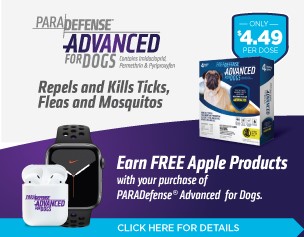On the Go with Your Pets

Happy hour looks a bit different this year, in fact the term is ‘Yappy Hour’ where pet parents bring their canine fur babies to meet up with friends, enjoy drinks and snacks while their pups play freely. Yappy hours are offered anywhere from the Ritz-Carlton to local Animal Welfare and many Yappy hours contribute to local animal charities. This trend is alongside many changes modern pet parents are making to ensure their fur baby is included in all the family plans, including social outings and travel. A survey conducted by American Pet Products Association (APPA) showed that 37% of pet owners bring their pet with them when they travel which is up from 19% ten years ago. I love seeing animals out and about with their humans, but as a veterinarian I can’t help but worry about the increased exposure to different environments and spread of disease. So, what can we do to keep our patients safe while also keeping up their modern-day social schedule?
It was not very long ago when dogs weren’t even kept inside the home. Covered in fleas and in ticks, no one really wanted their canine companion indoors. With the invention of topical flea and tick preventions in the 1990s, dogs began living indoors all year long and even sleeping in the bed with us and our children. Now, in 2020, dogs are going to work with us, traveling on airplanes, staying in our hotel rooms, and dining al fresco! And when they cannot tag along, we arrange for them to stay at posh dog hotels and daycares. As a veterinarian, I worry about parasites, bacterial and viral diseases with the increased exposure our fur babies are getting. I want to make sure my patients are protected so they can travel freely with their owners.
Parasites
Parasites are preventable! With dogs being around other dogs in multiple different settings it is imperative they are protected against ticks, fleas, and mosquitos. You may think because your practice is in a certain area; you really don’t have to worry about ticks. However, if that pet’s family is considering a summer trip to the beach or do a historical tour, the risk of tick-borne illness to the dog is going to increase dramatically. Many hotels are pet friendly which is wonderful, but I worry about the immature stages of fleas (eggs, larvae and pupae) living in the carpet and furniture in hotel rooms. Heartworms are in all 50 states, so regardless of where you practice, heartworm prevention is non-negotiable for all patients. The American Heartworm society recommends the use of a repellent (such as PARADefense Advanced) in addition to heartworm prevention as ectoparasites containing a repellent have been shown to increase the efficacy of heartworm prevention by controlling mosquitos. Using a topical product that contains a repellent will also discourage fleas and ticks from attaching to the pet and allow a parasite free vacation for everyone.
Bacterial disease
There are many bacterial diseases dogs can be exposed to when out and about. Leptospirosis has a vaccine and the potential to be prevented. Families that hike, have hunting dogs, and/or large backyards should have their dogs vaccinated for Leptospirosis. Leptospirosis is transmitted through urine of infected wildlife; the dog doesn’t necessarily have to drink from standing water. If a dog has a torn nail or paw pad and happen to walk through a puddle or just an area where wildlife has been, then they are exposed. Dogs are traveling, but so is wildlife and with continued development pushing these creatures into our neighborhoods, breeds like chihuahuas and shih tzus (who aren’t typically hiking or hunting) are going to be exposed to leptospirosis and can’t miss being vaccinated.
Viral Disease
There are many viral diseases affecting our canine patients, but of most concern to me are parvovirus and canine influenza. Parvovirus is always a concern in an unvaccinated dog exposed to multiple outdoor environments and other dogs. Vaccination is the key and making sure all of our patients are staying up to date with their immunizations. An additional concern is canine influenza. We do have access to immunizations against the 2 main strains: H3N8 and H3N2. The H3N8 strain has been around longer and it has been found in dogs in all 50 states. The newer strain H3N2, which caused an outbreak in Chicago in 2015, has been contained to 10 states due to the available vaccine. Immunization is important against canine influenza because this virus is highly contagious. It can be transmitted through coughing, barking, sneezing and through objects (that communal Yappy Hour water bowl) and people that have been in contact with exposed animals. Dogs are most contagious during the incubation period (2-8 days) and some dogs may shed the virus and never show clinical signs. With many of our patients traveling state to state to weekend errands, it is important to ensure all pets are up to date on their immunizations.
I love seeing animals out with their owners. It makes me smile when I think of how they must love to be included in the family activities. As veterinarians, it is our responsibility to make sure that our patients can continue this lifestyle by recommending year-round heartworm prevention, flea and tick control, and ensuring they are up to date with all of their immunizations!
Dr. Leigh Hofmeister was born in Atlanta, Georgia. She graduated from Clemson University, followed by veterinary school at Ross University. She completed her clinical studies at Oklahoma State University and has been working in small animal private practice ever since. Dr. Hofmeister is also the creator and author of the blog My Vet + Me, at www.myvetandme.com.
Careers
Are you looking for a place to let your talents shine? At Covetrus, we help our practitioner customers better serve their patients and take pride in providing the best customer experience possible. Search our open positions to see our available opportunities.
Newsletter
Stay current with what’s going on with Covetrus, subscribe to receive our newsletter and email communications. Subscribers will receive the latest information in practice management, sales and marketing, animal health, and more.


